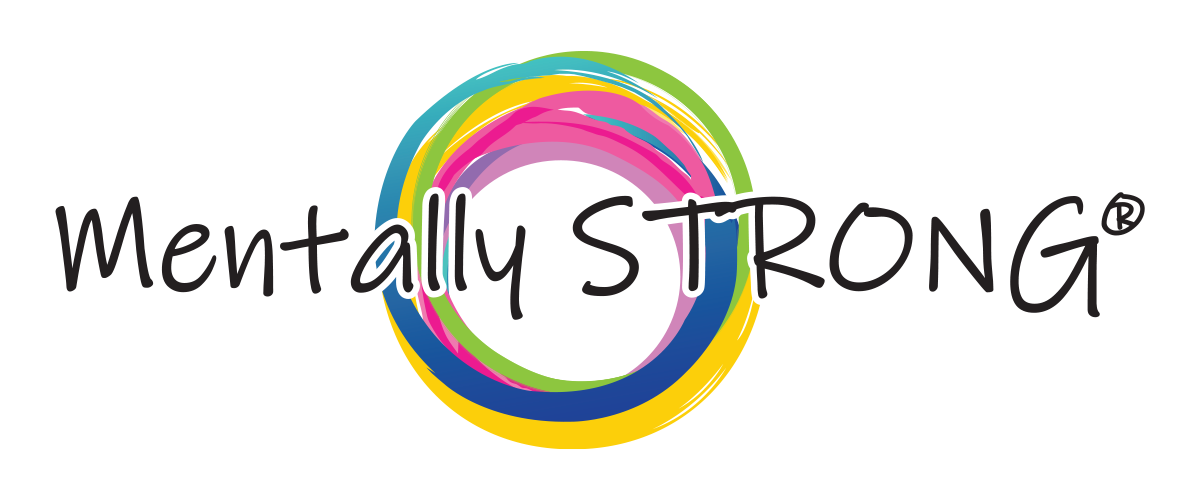Life often feels incredibly hard, doesn’t it? I hear this so often from people navigating difficult times—feeling overwhelmed, exhausted, or even stuck. Life’s challenges can sometimes feel relentless, and it can be tough to see a way forward. It’s okay to feel this way; it’s part of the human experience. But it’s also important to explore these feelings and understand where they come from so we can learn to cope and grow stronger through them.
The Nature of Life’s Struggles
When you’re in the thick of it, it can feel like you’re carrying the weight of the world. Whether it’s grief, financial hardship, or societal pressures, these struggles often combine and create a sense of being overwhelmed. Remember, you’re not alone in this experience—many of us face these challenges, and we can find ways to cope and grow stronger.
Common Reasons Life Feels Overwhelming
There are many reasons why life feels so heavy at times. Understanding these reasons is the first step in navigating through them.

Personal Losses and Grief
Loss has a way of changing our world. It could be the loss of a loved one, a relationship, or even a part of yourself. The grief that follows can feel heavy and all-consuming. I’ve personally navigated deep grief after losing loved ones, and I understand how it can feel like a dark cloud that never lifts. Grief isn’t something that simply goes away—it evolves, and we learn to carry it differently over time.
Health Issues and Chronic Stress
When you’re facing health challenges or chronic stress, it can feel like you’re fighting a battle every day. This isn’t just about the physical toll but also the emotional weight that accompanies it. It drains your energy and can cloud your ability to see a path forward. Finding ways to manage stress, whether through support systems or self-care practices, is crucial for reclaiming your sense of well-being.
Financial Hardships and Uncertainty
Financial struggles bring a unique kind of stress—one that sits heavily on your shoulders. It affects how you see the future and can lead to feelings of hopelessness or despair. Financial uncertainty isn’t just about numbers; it’s deeply connected to our sense of security and stability. Finding ways to navigate these hardships, whether through practical strategies or seeking support, can help lighten this load.
Societal and Environmental Stressors
Our personal struggles don’t exist in a vacuum; they’re often intertwined with the broader world around us. Economic and social inequities, for example, are not just frustrating; they can make you feel stuck, exhausted, and as though you’re always a few steps behind despite your efforts. It’s essential to recognize that these are systemic issues and not personal failings.
Additionally, societal expectations can pressure us to live up to unrealistic standards—whether in success, appearance, or life choices. These pressures often lead to cycles of self-doubt and comparison, steering us away from what truly matters. Finding your own path—one that aligns with who you truly are—is key to feeling more at peace.
Exploring Personal Mindset and Its Impact on Life’s Challenges
How we perceive and respond to life’s challenges has a lot to do with our mindset. Negative self-talk and limiting beliefs can make everything feel harder than it needs to be. It’s crucial to understand how our thoughts shape our reality and, more importantly, how we can reshape those thoughts to better serve us.
The Role of Negative Self-Talk and Limiting Beliefs
Often, the most damaging stories are the ones we tell ourselves. Maybe you’ve been told, or you’ve come to believe, that you’re not good enough or that life will always be this difficult. These beliefs can become self-fulfilling prophecies, limiting what you believe is possible for yourself. Identifying and challenging these negative thought patterns is the first step to changing them.
Adjusting Your Mindset: The Power of Positivity and Self-Compassion
Positivity isn’t pretending everything is okay when it’s not; it’s acknowledging the challenges while also believing in your ability to get through them. Self-compassion is equally important. Instead of beating yourself up over setbacks, imagine how much more resilient you could be if you treated yourself with the same kindness you’d offer a close friend.
Reframing Challenges as Growth Opportunities
One powerful way to shift your mindset is by reframing challenges as opportunities for growth. When we start seeing obstacles not as insurmountable walls but as stepping stones toward becoming stronger and more self-aware, everything changes. It doesn’t mean the pain or difficulty disappears, but it allows you to approach life with a sense of purpose and direction.
Developing a Resilient and Flexible Mindset
Resilience is not about being unbreakable; it’s about being able to bend without breaking. A resilient mindset recognizes that setbacks are part of life but doesn’t allow them to define us. It’s about flexibility—adjusting your sails when the winds change rather than resisting the storm. Building this kind of mindset requires continuous practice, patience, and a commitment to self-growth.
How to Cope When Life Feels Overwhelming
When life feels overwhelming, knowing how to ground yourself is essential. There will be times when everything feels too much, and in those moments, having strategies to stay present and calm can make all the difference. You don’t have to have all the answers, but having tools in your emotional toolbox can help you navigate through tough times.

Techniques for Self-Regulation and Staying Grounded
Learning to self-regulate—managing your emotions in healthy ways—starts with small, practical steps. It might be deep breathing, grounding exercises, or a five-minute meditation to reset your mind. Whatever works best for you, the goal is to create space between a trigger and your response, giving yourself a moment to choose how you want to react.
Practicing Self-Care and Mindfulness
Taking care of yourself isn’t just about bubble baths and spa days—though those can help. Real self-care involves making choices that nourish your body, mind, and soul. This could mean setting boundaries, saying no when you need to, or simply making time for activities that bring you joy and peace. Mindfulness is about being present in the moment, allowing yourself to feel what you feel without judgment, and finding a sense of calm amid the chaos.
Seeking Support: You Don’t Have to Do It Alone
You don’t have to go through life’s hardships alone. Reaching out for support, whether from loved ones or professionals, can make all the difference in navigating difficult times. There’s strength in asking for help and recognizing when it’s needed.
Building a Support Network
When we reach out to friends and family, we’re allowing ourselves to be vulnerable, and that’s a form of strength. It’s okay to say, “I’m struggling right now,” and let others be there for you. Real connection happens when we are open and authentic with those who care about us.
Sometimes, though, we need more than our immediate circles can offer. Finding community support—whether through local groups, online forums, or shared-interest organizations—can be incredibly validating. There’s real power in knowing that you’re not alone, that others are facing similar challenges and that you can learn from each other’s journeys.
Recognizing When to Seek Professional Help
Sometimes, despite our best efforts, life’s challenges can feel like too much to handle alone. If you notice that feelings of sadness, overwhelm, or hopelessness are becoming more frequent, it might be time to consider professional help. Therapy and counseling offer a space to understand your emotions, work through them, and learn tools to cope in healthier ways.
Pay attention to signs like constant exhaustion, lingering sadness, or feeling stuck with no way out. These feelings don’t mean you’re failing; they simply mean you could benefit from some extra support. Seeking help is not a sign of weakness—it’s a step toward reclaiming your mental wellness.
Strategies for Finding Meaning and Purpose
When life feels hard, finding a sense of purpose can act as a guiding light. It’s about reconnecting with what truly matters to you, clarifying your personal values, and taking steps that align with them. This can create a deeper sense of fulfillment, even amidst life’s chaos.

Clarifying Personal Vision and Goals
When life feels chaotic or overwhelming, anchoring yourself in your core values and setting goals that resonate with your personal vision can bring much-needed clarity. Your personal vision is more than just a list of goals—it’s a deeper understanding of who you want to be. Knowing what truly matters allows you to make decisions that align with this vision, creating a sense of peace and direction in a world that often feels unpredictable.
Consider how your actions today reflect the person you want to be in your relationships, career, health, and overall well-being. Are you making choices that nurture your connections, support your career aspirations, or enhance your health? If not, what small changes can you make to better align with your vision? These adjustments, however minor, can create a life that feels more in sync with your true self.
Living with a clear sense of purpose is where motivation often flourishes. It doesn’t mean every step will be smooth, but when guided by a meaningful vision, it becomes easier to face the rough patches. Seeing life’s challenges through this lens turns them into opportunities for growth, allowing you to evolve closer to the person you aspire to be in every aspect of your life.
Using Setbacks as a Catalyst for Change
Life’s setbacks, while painful, can serve as powerful catalysts for change. It’s through facing these challenges that we often discover our true strengths and learn the most about ourselves. These moments can push us to grow in ways we never imagined. Instead of viewing setbacks as failures, try to see them as lessons. What can you learn from this experience? How can it make you stronger, more resilient, or more compassionate? Embracing these lessons can help shift your perspective from one of defeat to one of personal growth.
Reflection is key to understanding how to move forward. By regularly taking time to reflect on your thoughts, emotions, and actions, you can gain valuable insights into what’s working and what needs to change. This self-awareness allows you to make more intentional choices and cultivate a life that aligns with your values.
Navigating Through Emotional Complexity: Accepting Life’s Highs and Lows
Life is filled with both joy and pain and you need to learn to navigate through this emotional complexity. Every emotion you experience, whether it’s happiness, sadness, or anger, has a purpose. They are not indicators of failure or weakness but are part of what makes you human.
Feelings like sadness and anger aren’t aren’t flaws; they are signals from your mind and body that need your attention. By accepting these emotions, you will create space for healing and growth. At the same time, it’s important to find a balance between acceptance and action—honoring where you are while also deciding how you want to move forward.
Moving Forward with Strength and Hope
As you face difficulties in life,it’s only natural for you to question why life is so hard, but it’s essential to keep moving forward with strength and hope. Life is hard, but it is also filled with possibilities for growth, connection, and joy. I have walked this journey myself and understand the complexities of navigating life’s toughest moments. If you’re looking for practical tools to guide you through this journey, consider enrolling in the Mentally STRONG Method course. It provides a structured approach to understanding your emotions and finding clarity amidst the chaos. And if you’re seeking personalized support, our team at the Mentally STRONG Clinic is here to help you take those first steps toward healing.

